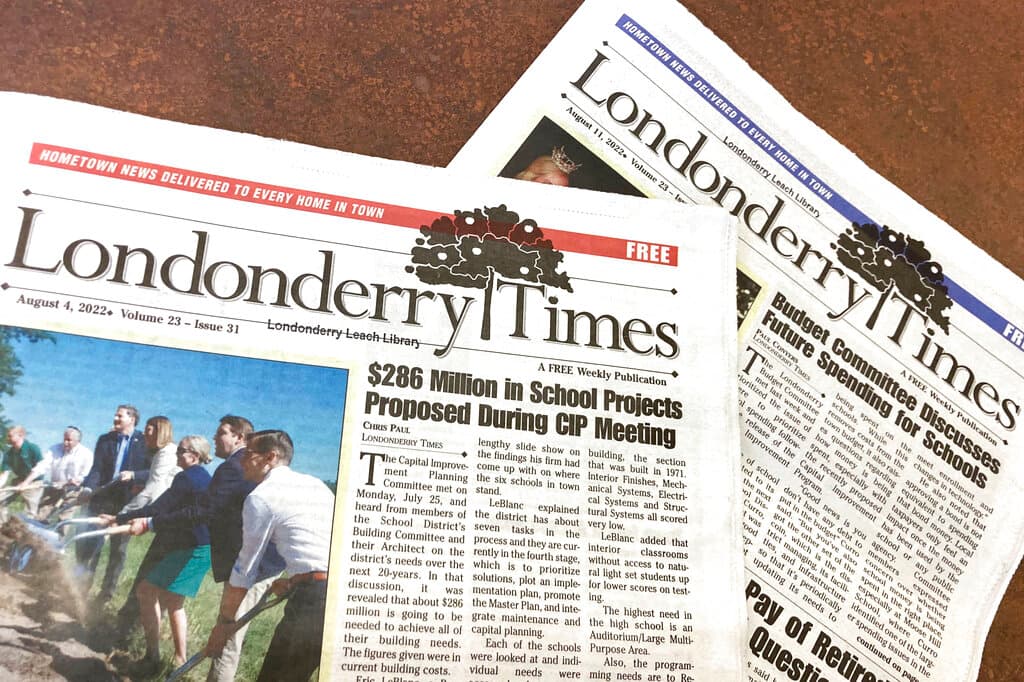A New Hampshire Newspaper Case Highlights Trouble With State Level Advertisement Regulations
Ahead of what is poised to be an election season saturated with political ads, state regulators are struggling to grapple with enforcing their regulations.

A New Hampshire newspaper publisher is due in court for sentencing next week after the publisher was convicted of running improperly marked political advertising. The case comes ahead of an election where states are poised to struggle to enforce recent regulations on a booming digital advertising market.
The publisher of the Londonderry Times, Debra Paul, was convicted on five misdemeanor charges and acquitted on a sixth charge in a November trial. Each charge can be punished with up to a year in prison and a $2,000 fine.
While the case in New Hampshire concerns local political advertising for school board candidates, the issues of political ad disclosure and regulation is something that the states across the country are grappling with in the run up to what will potentially be the most ad-saturated political season of all time in 2024.
Ms. Paul’s attorney, Anthony Naro, tells the Sun that though she was acquitted on one count “we are disappointed with the remainder of the verdict” and that they “are considering all legal options moving forward.”
“What should not be lost in this story is that my client is a small business owner, who provides an important service to the community,” Mr. Naro tells the Sun. “With the rapid disappearance of small independent newspapers, I hope that the community will continue to support the Londonderry Times.”
The case goes back to summer of 2022, when the New Hampshire attorney general’s office brought charges against Paul, saying that the paper had failed to mark paid political ads with “appropriate language.”
A New Hampshire state law requires ads placed in newspapers, periodicals, and billboards to be marked at the beginning or end with the text “Political Advertising.”
New Hampshire also requires businesses to disclose the rates charged for political advertising to the state ahead of an election and stipulates that businesses must charge political candidates and committees at the same rate, regardless of affiliation.
In his closing statement at court, Mr. Nation argued that Ms. Paul’s “intent is abundantly clear. Her intent was to comply with the law.” Assistant Attorney General Matthew Conley, however, contested that Ms. Paul was warned multiple times that the way she was publishing ads was not compliant with New Hampshire law.
The ads in question were ads for school board candidates and were often labeled as “paid advertisement” or as “advertisement” but not as “paid political advertisement.”
An Insider Intelligence analysis found that digital ad spending over tripled between the 2016 and 2020 election cycles, rising to $1.34 billion in the 2020 cycle up from $0.44 billion in the 2016 cycle.
At the same time, some states have moved to require advertisers to disclose to viewers which groups are paying for the ads and disclose to regulators how much they paid and who is backing the group that made the ad.
One 2022 Louisiana regulation, for example, requires digital announcements and ads that are paid for by a third party to display the name of that third party on the advertisement.
A 2018 regulation in Virginia requires online political ads to follow the same disclosure process that is required for print media, television, and radio ads.
In a conversation with the Sun, Mr. Naro highlighted potential jurisdictional issues that regulators will face if they want to ensure paid political advertising is clearly marked as such.
“Does it matter if the ad is targeting people in the state?” Mr. Naro says. “What if the website is a company owned and operated within the state, but has the intent to reach anyone and note just persons in the state?”
Mr. Naro added that although “there are laws in place to reach into another state and prosecute someone for something they did in another state” that “I think it will be difficult to regulate activity online unless it’s a federal regulation.”
An ongoing case in Maryland illustrates another potential issue with state level regulation of online advertising as advertisers immediately fought back against regulation.
In the Maryland case, Apple and other online advertisers are seeking to have a state tax struck down. In 2020, Maryland passed a tax on digital ad revenue that applies to companies making at least $100 million a year from digital ad revenue globally. The tax levies between 2.5 percent and 10 percent of revenue generated from ads that are shown to Marylanders in Maryland.
Other major companies have filed their own lawsuit against the state over the regulation including Google, Amazon Advertising, Meta Platforms, Yahoo, Twitch, and Grubhub.
The president of Americans for Digital Opportunity, a group that represents the interest of digital advertisers but is not directly involved in the case, Doug Mayer, said that the “suit is just one more proof point that Maryland has bitten off way more than it can chew.”

